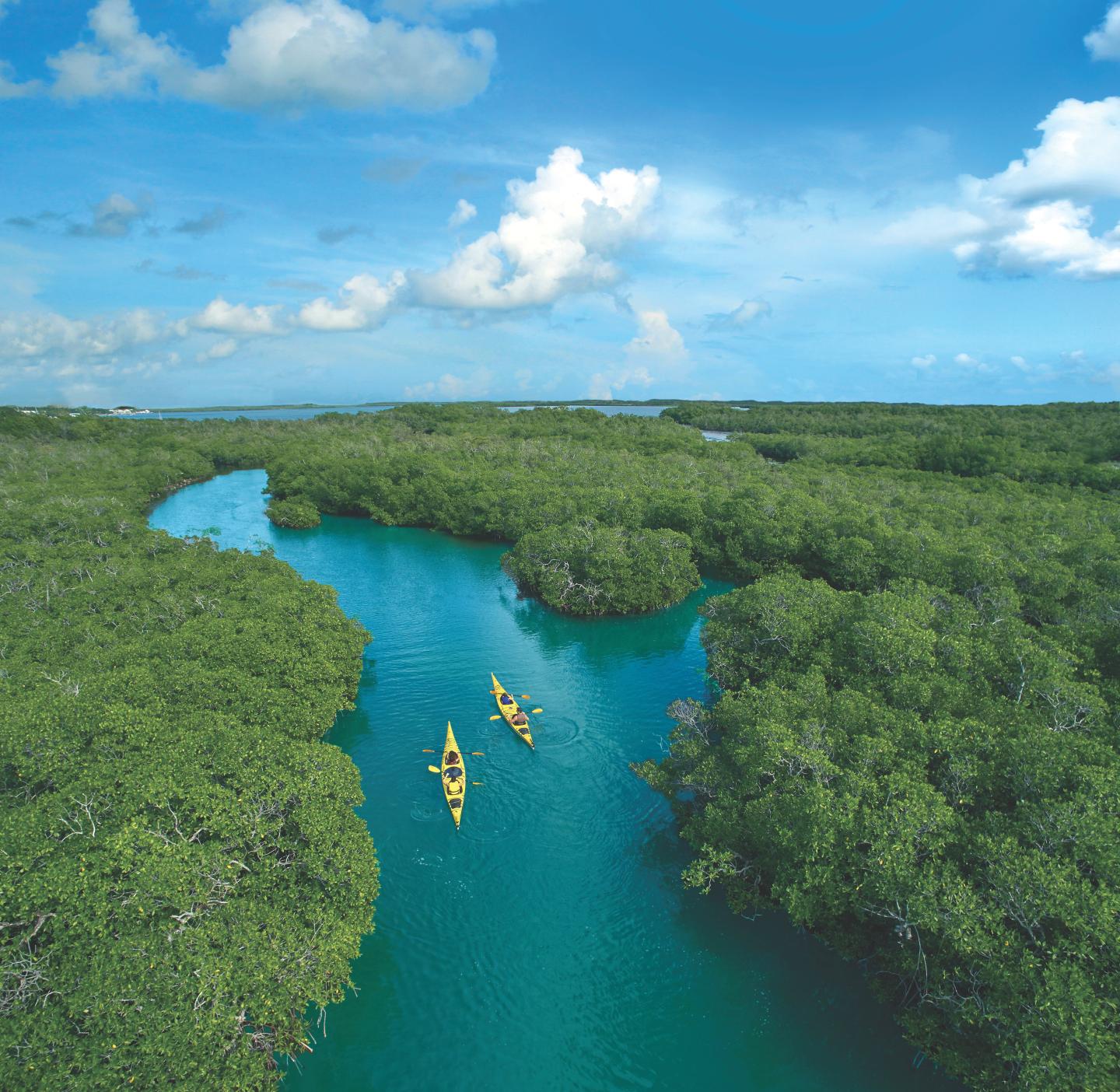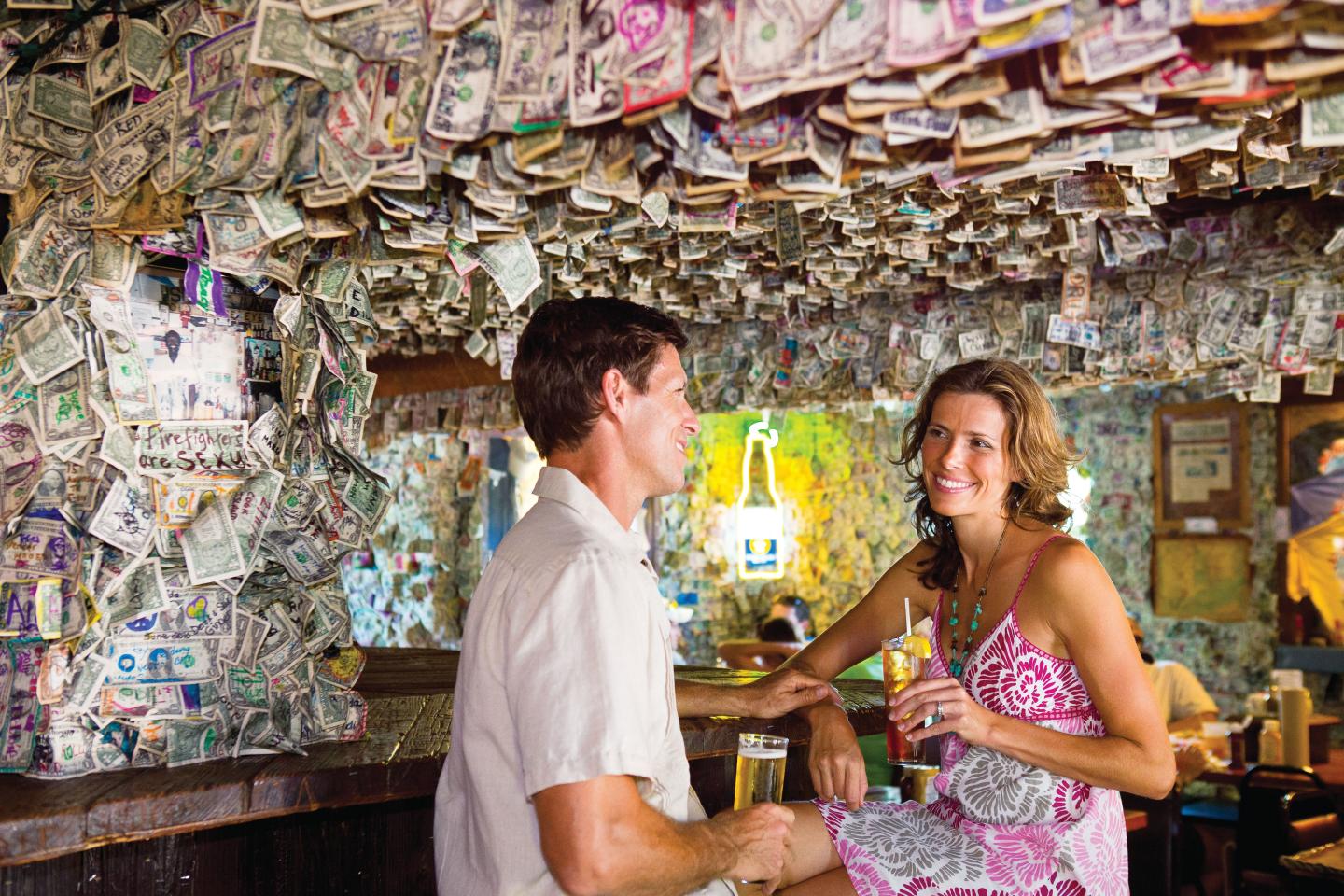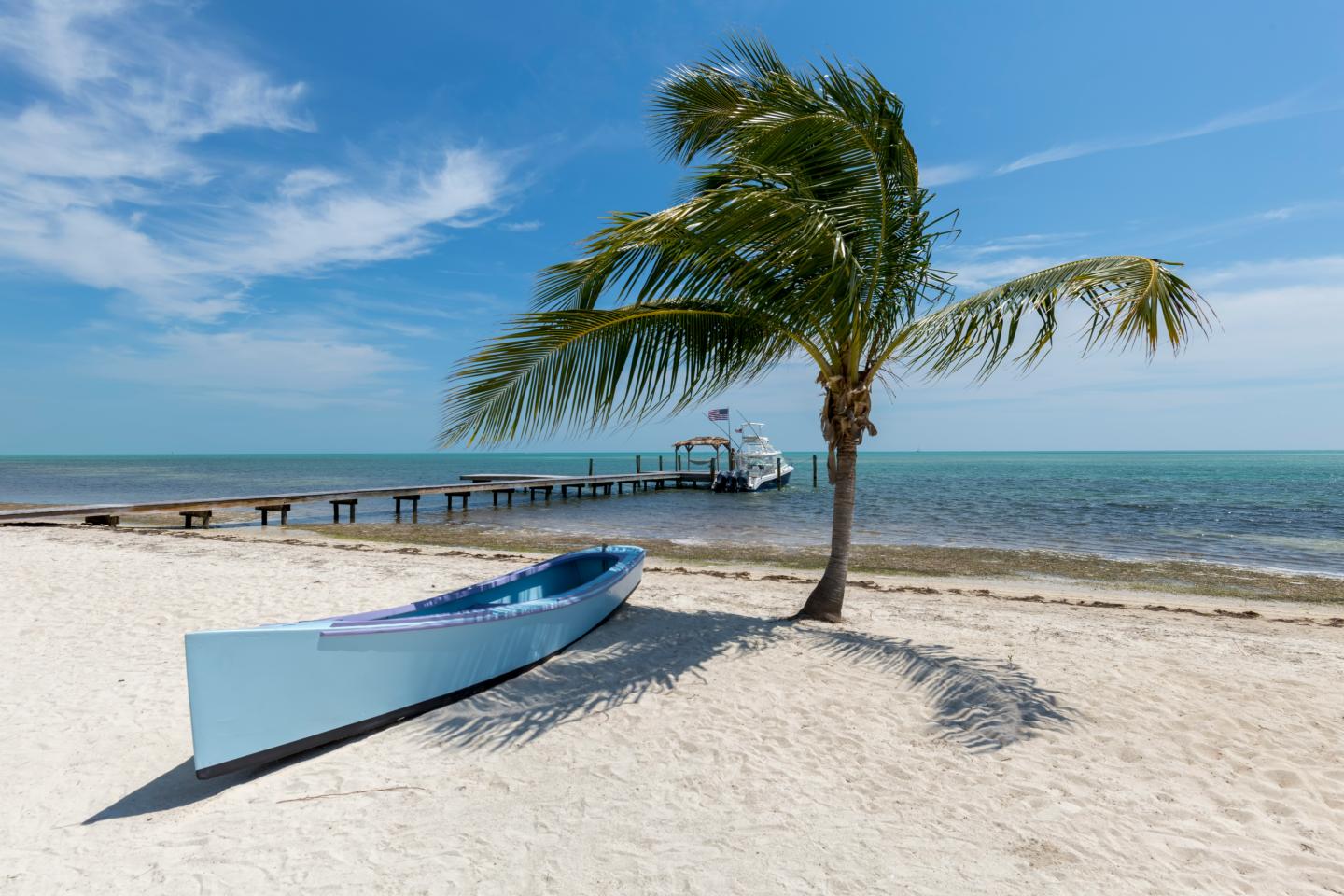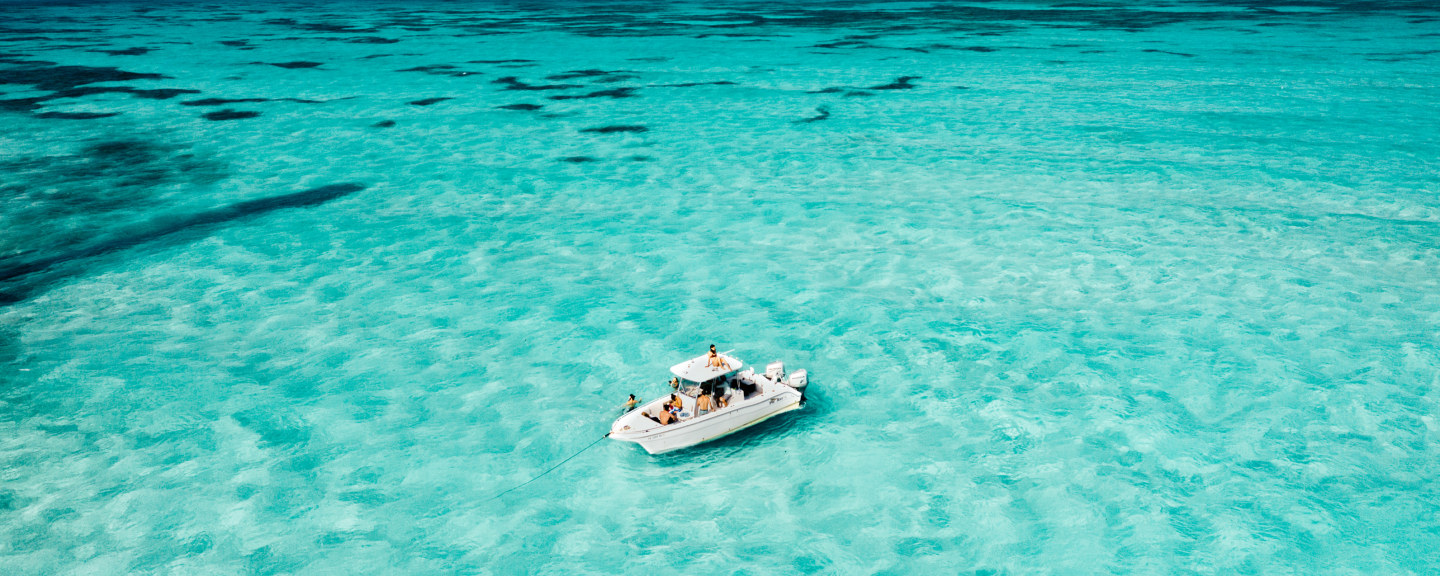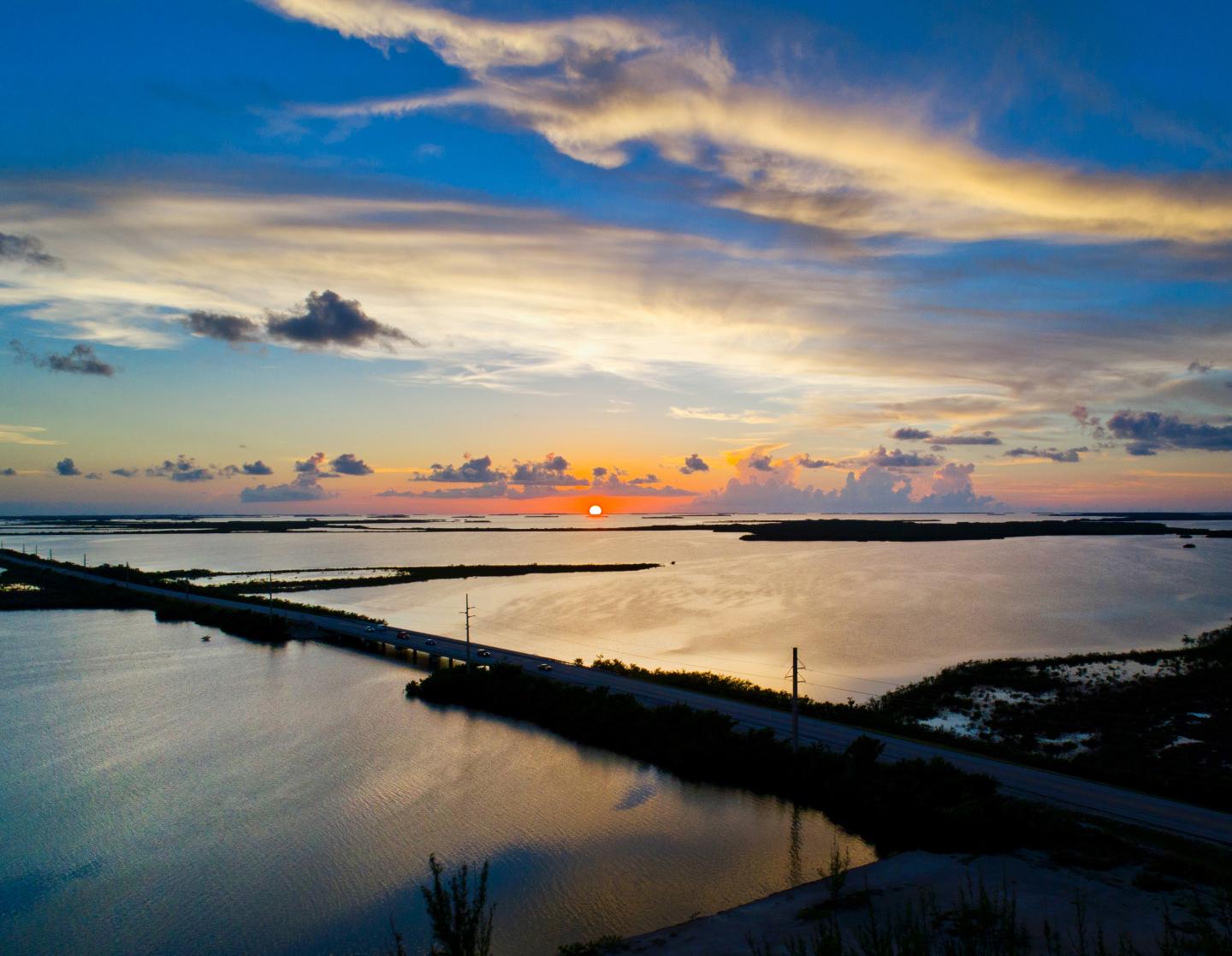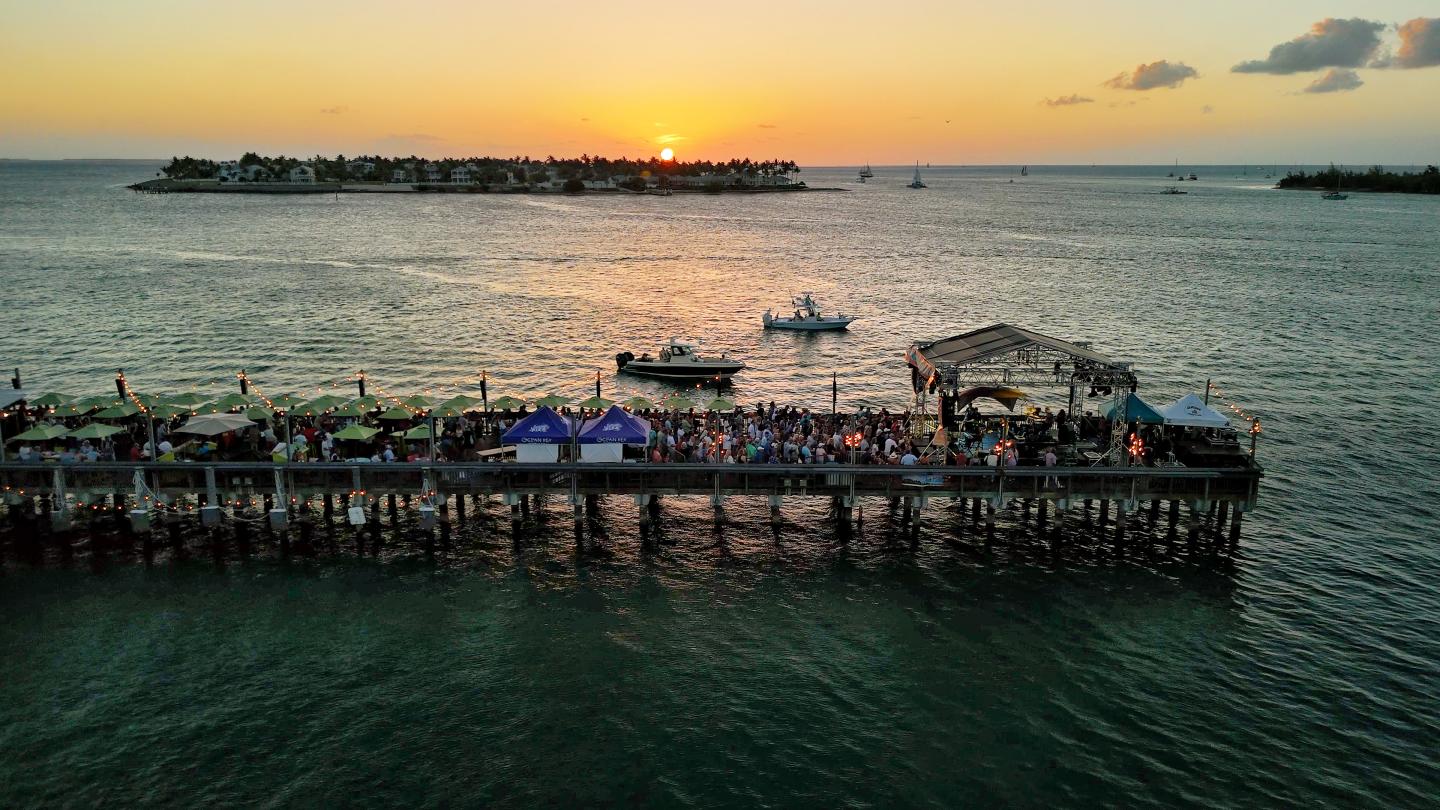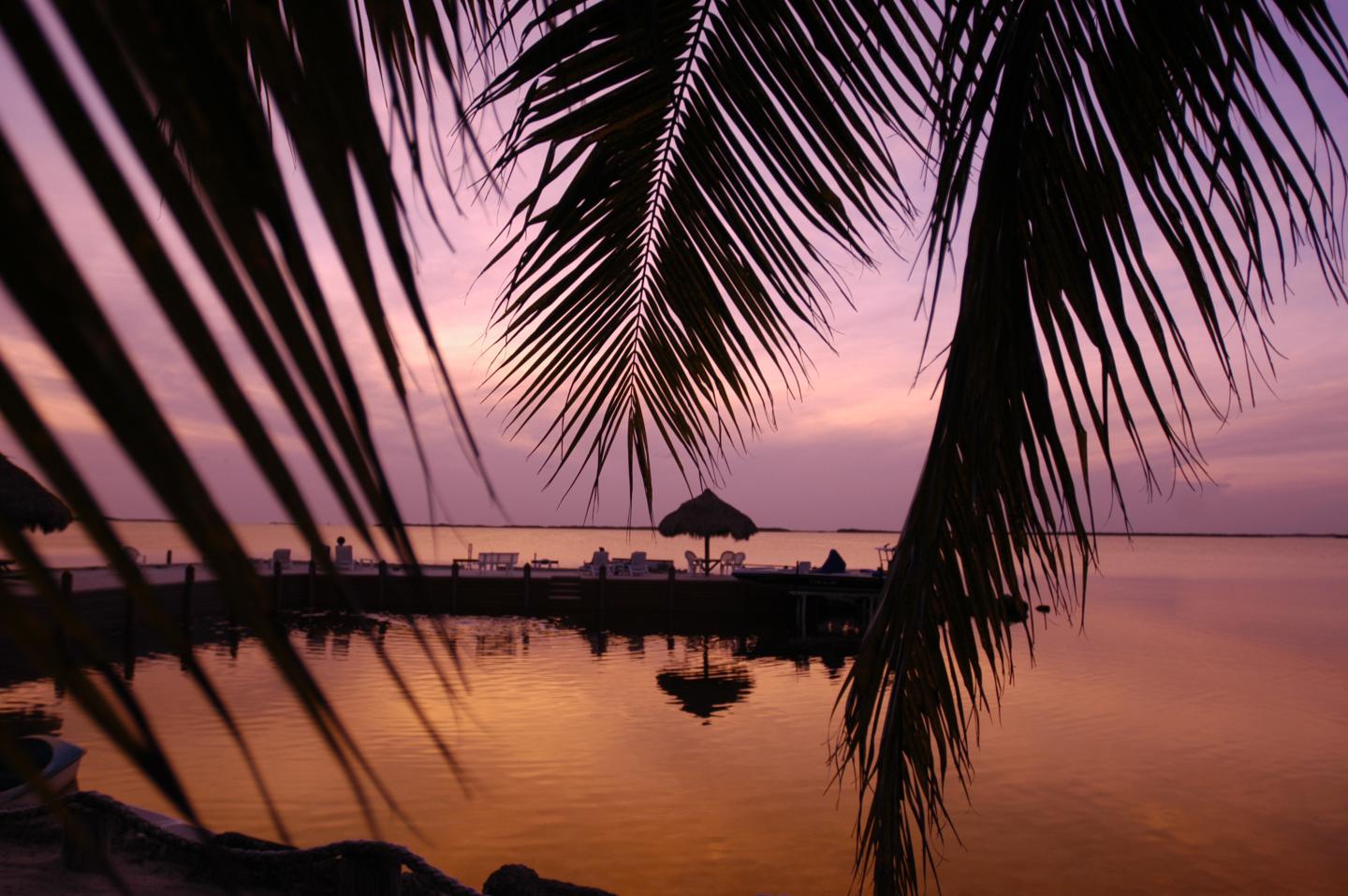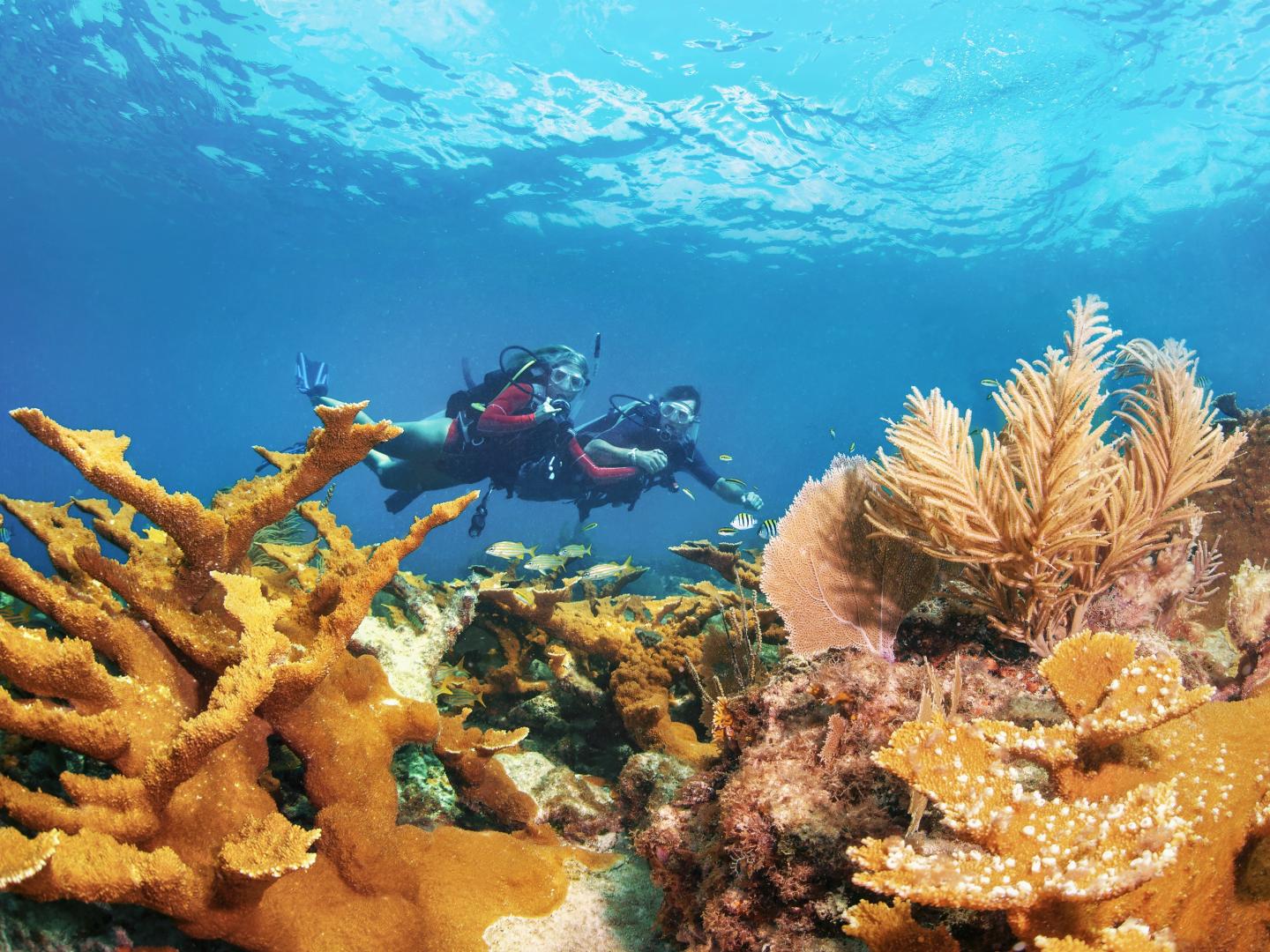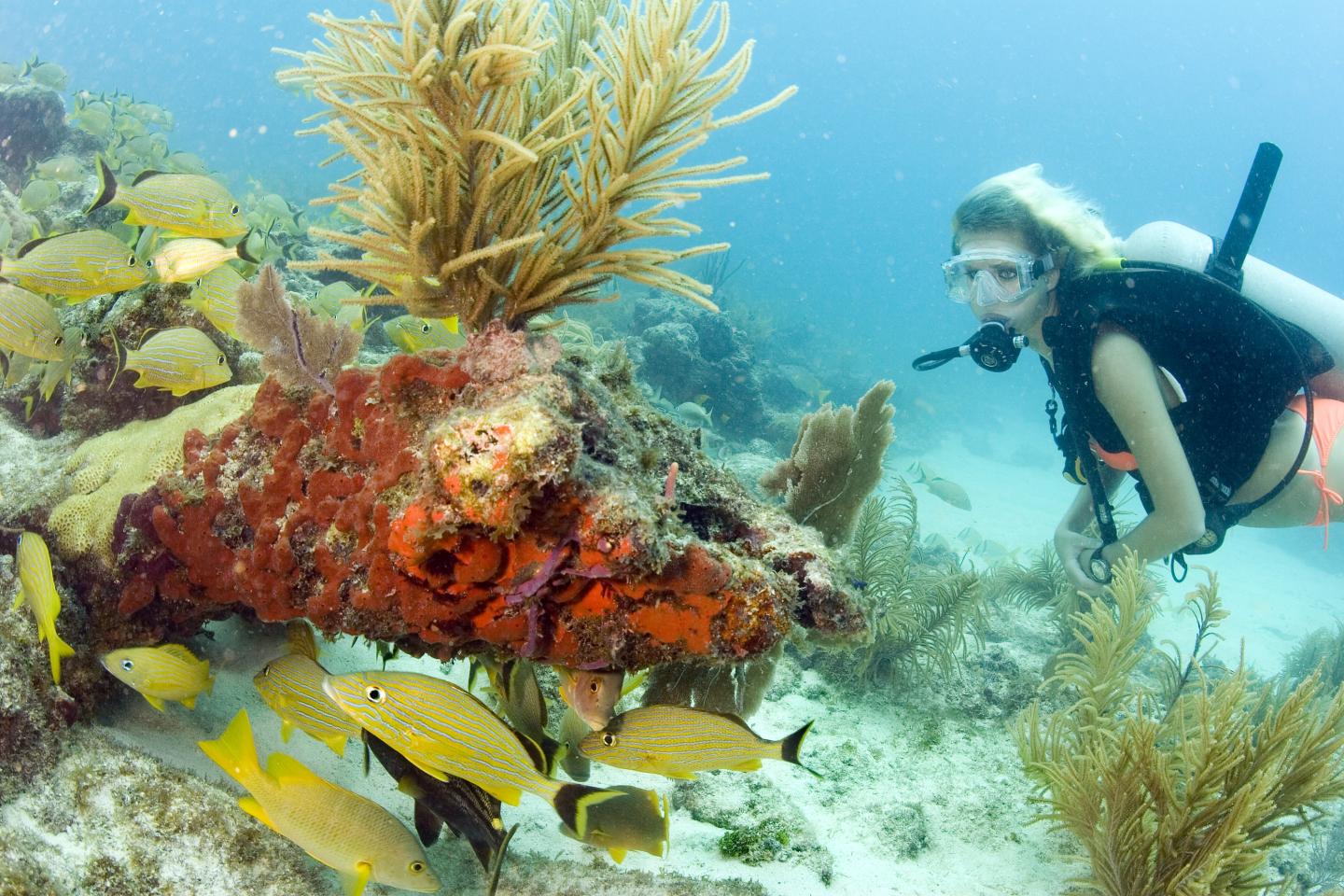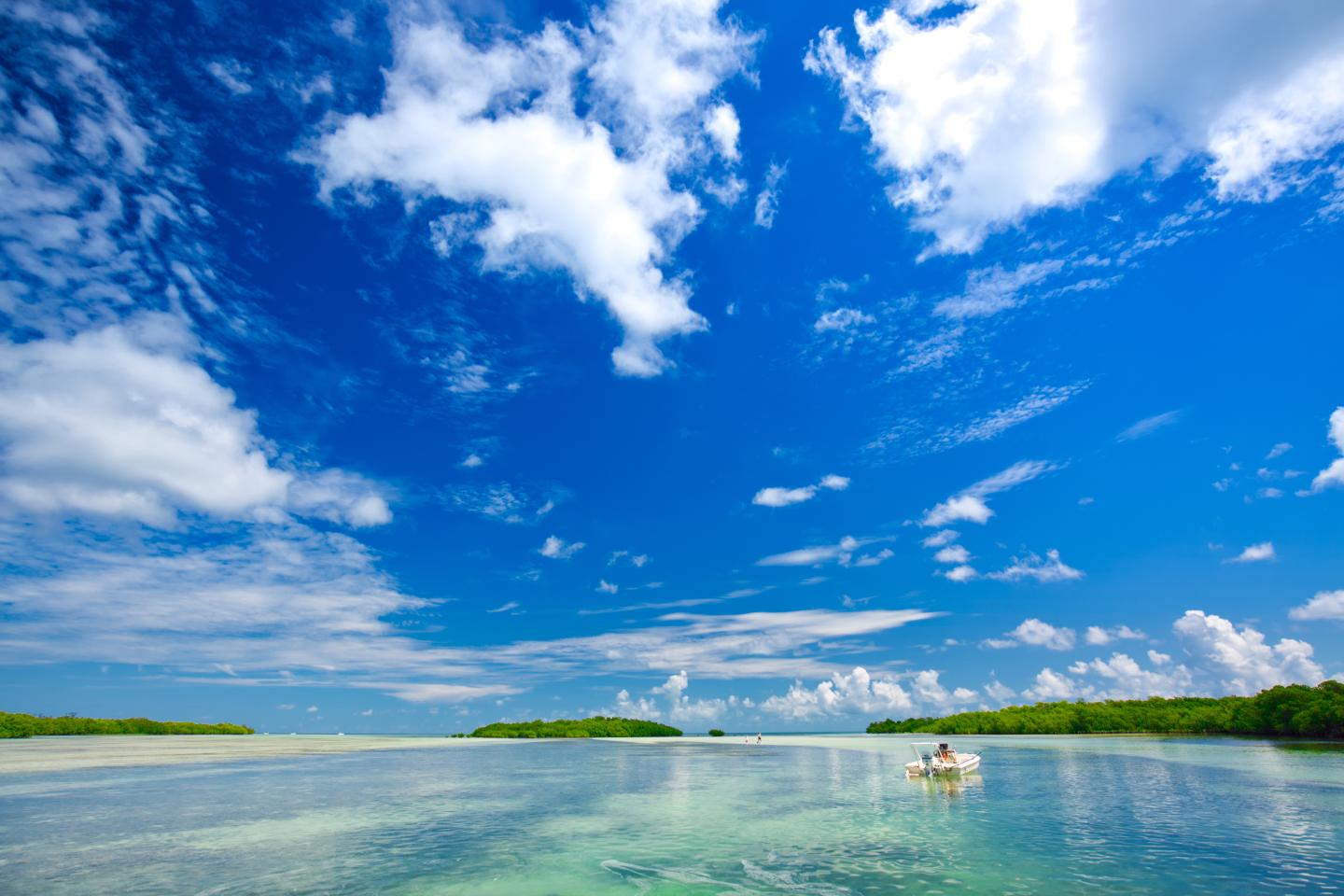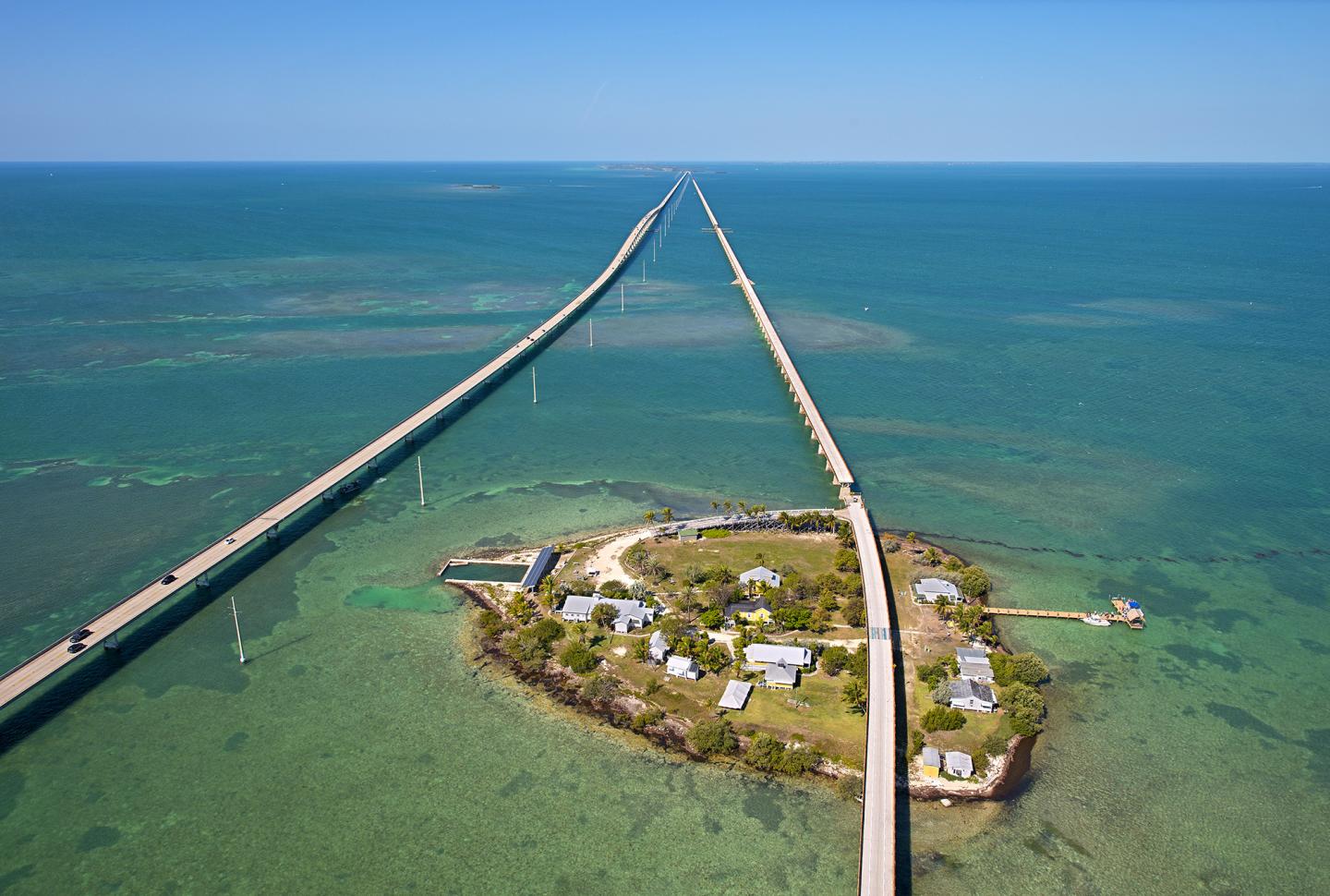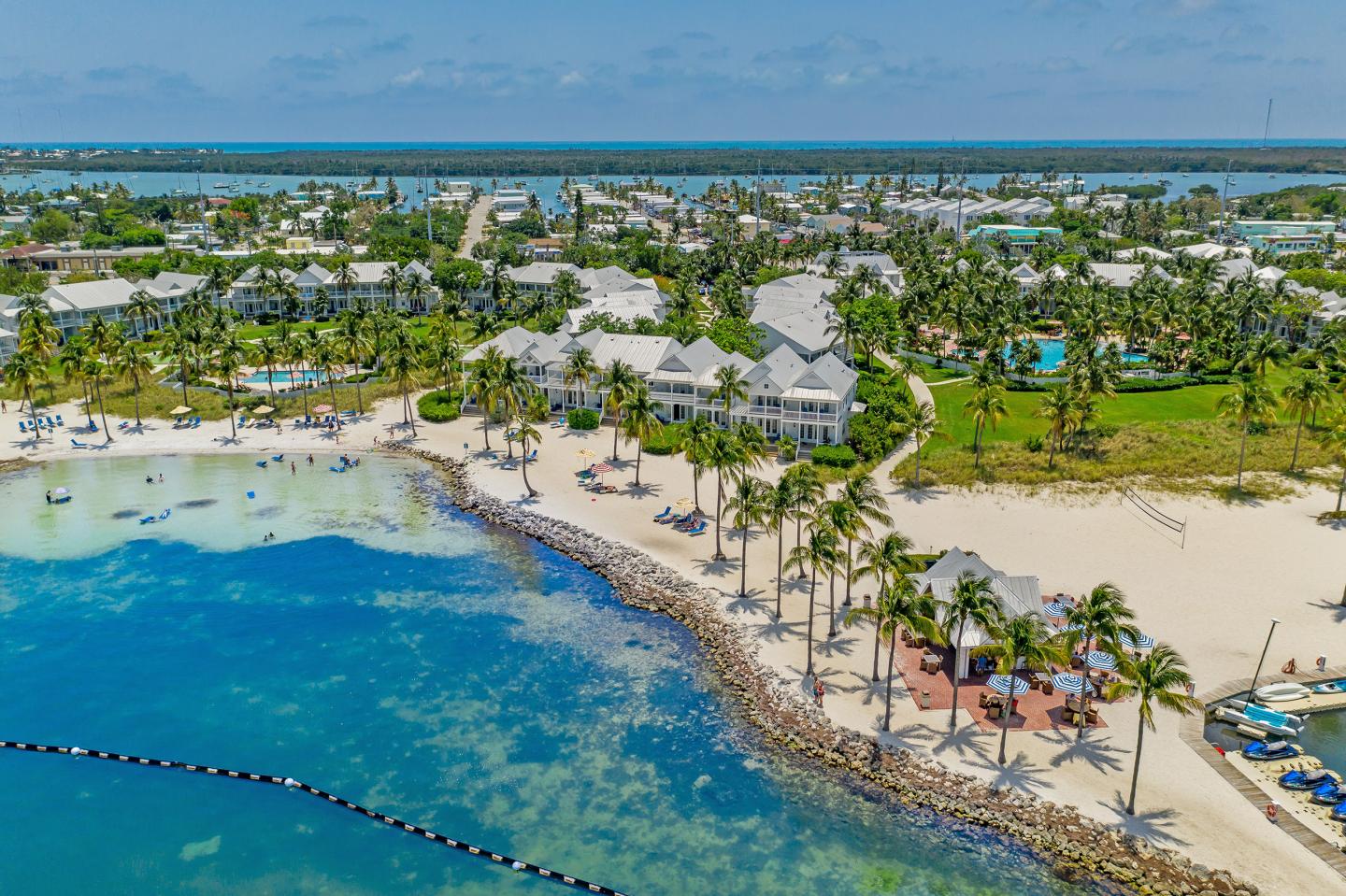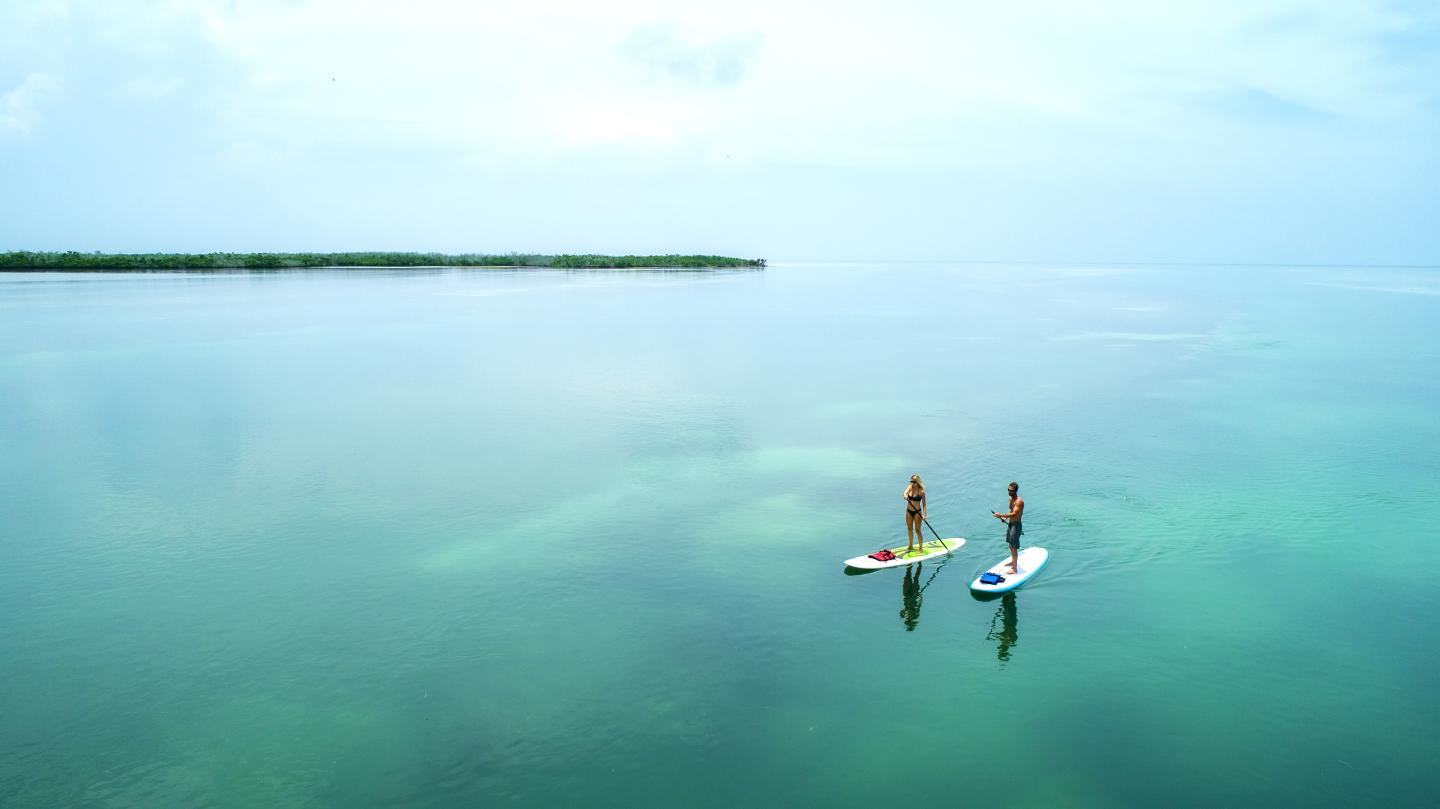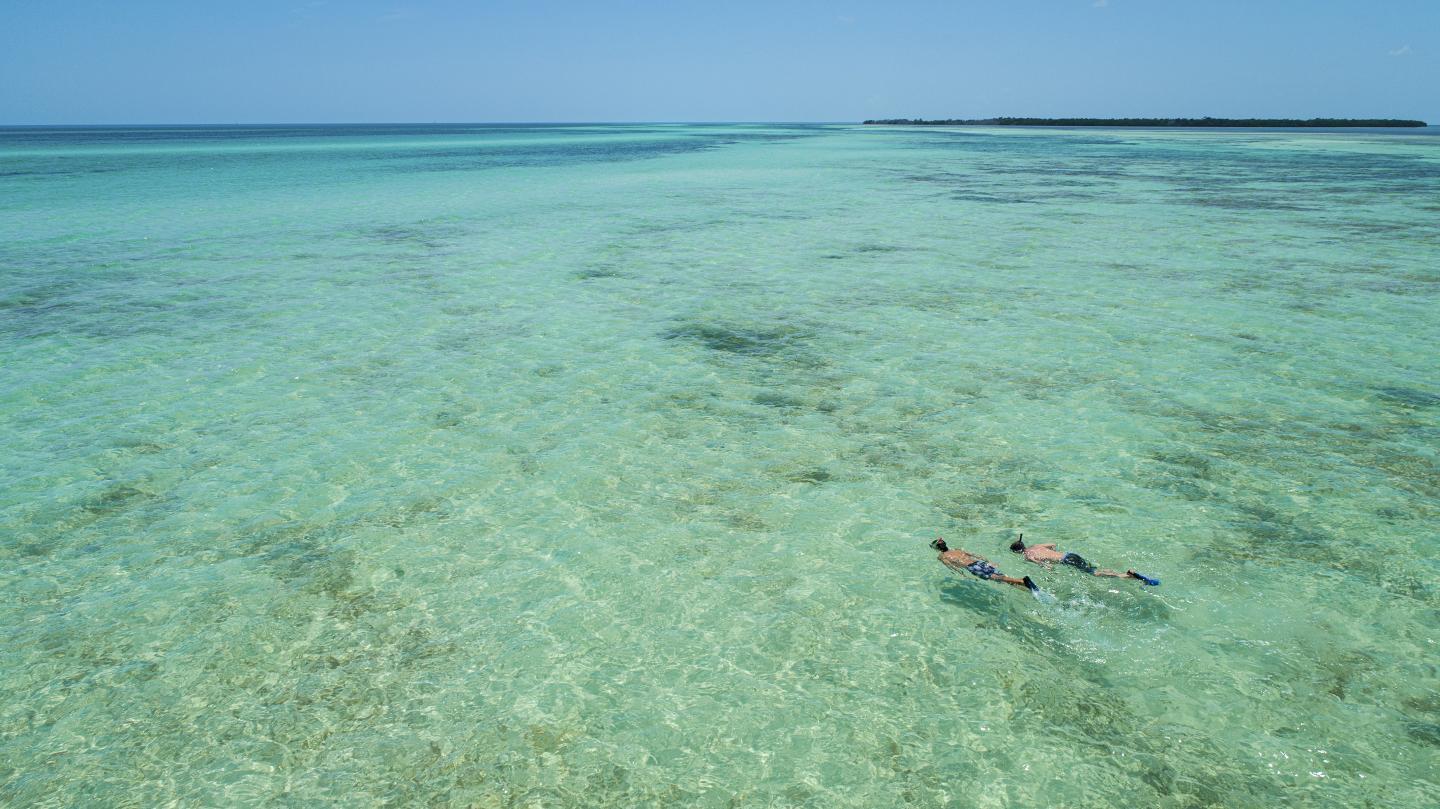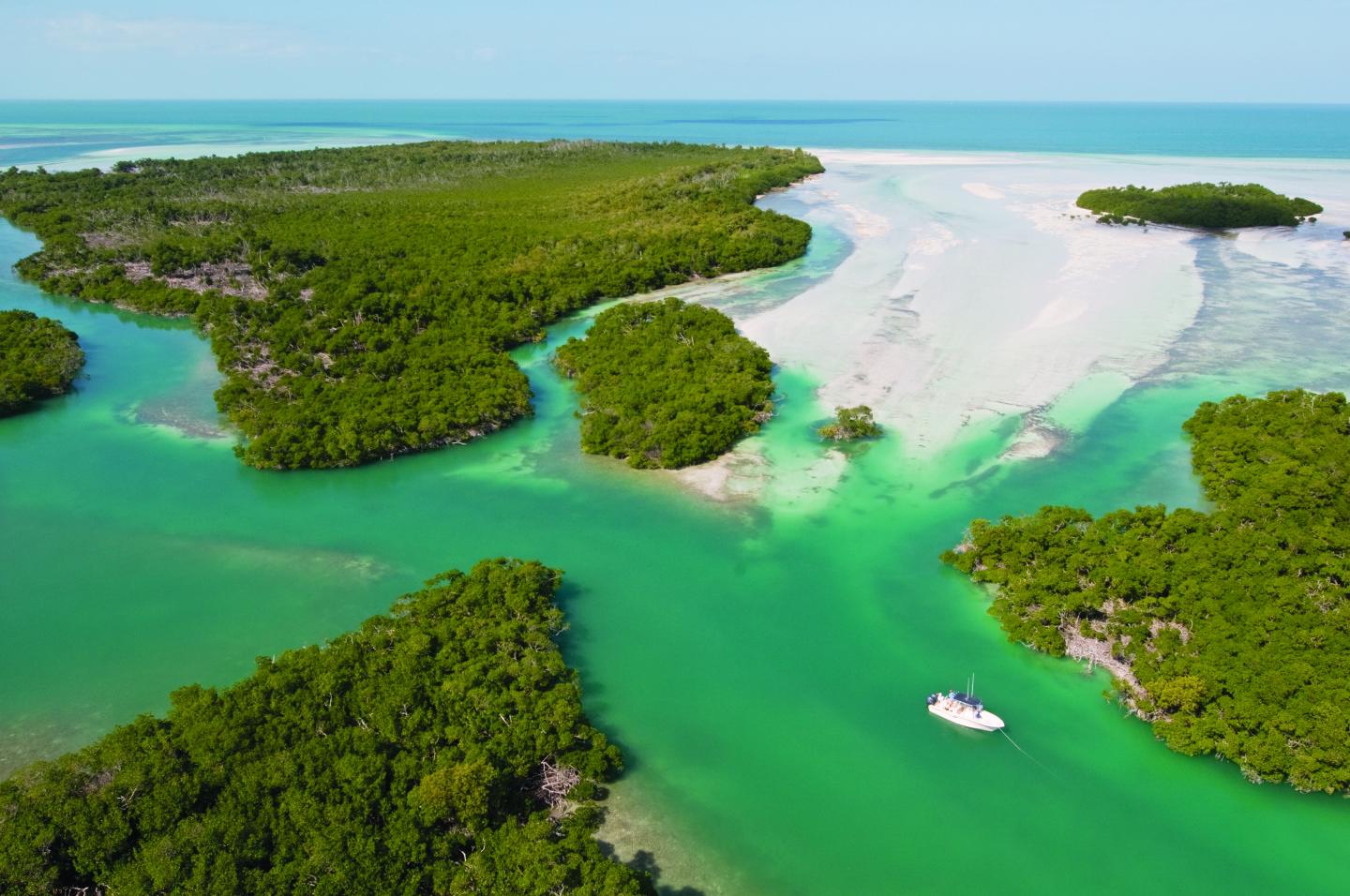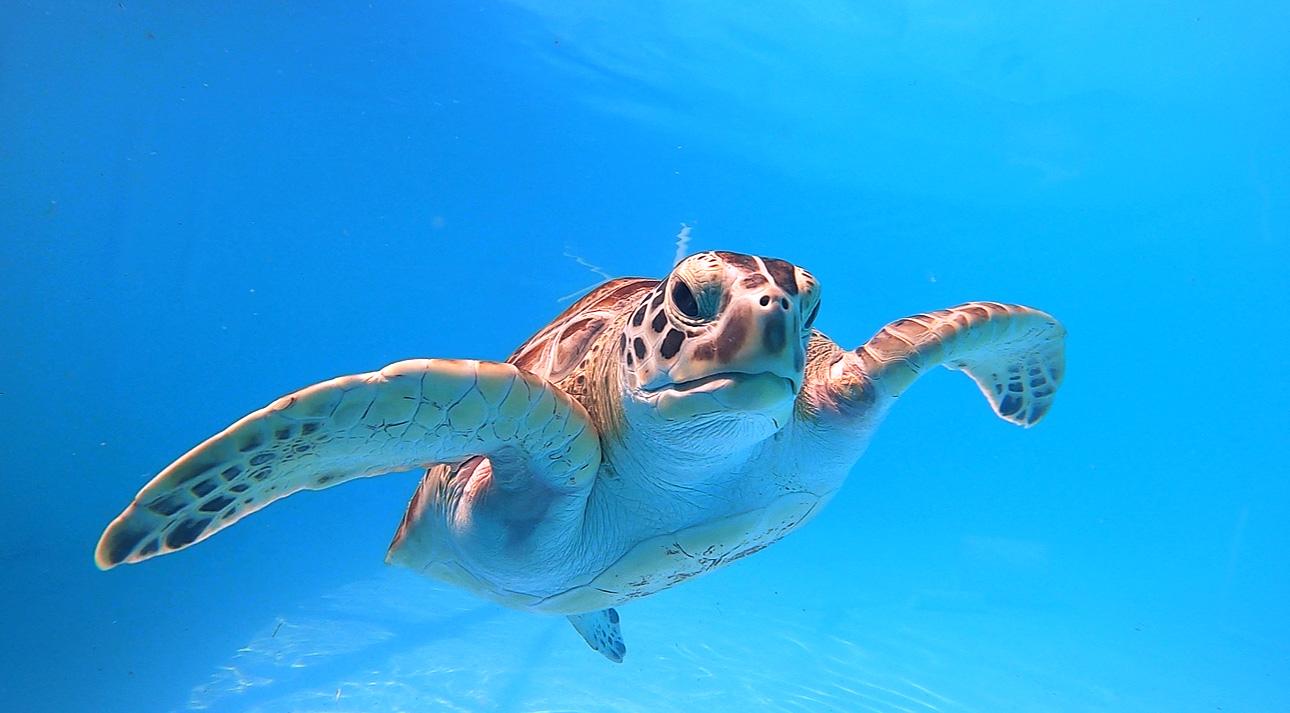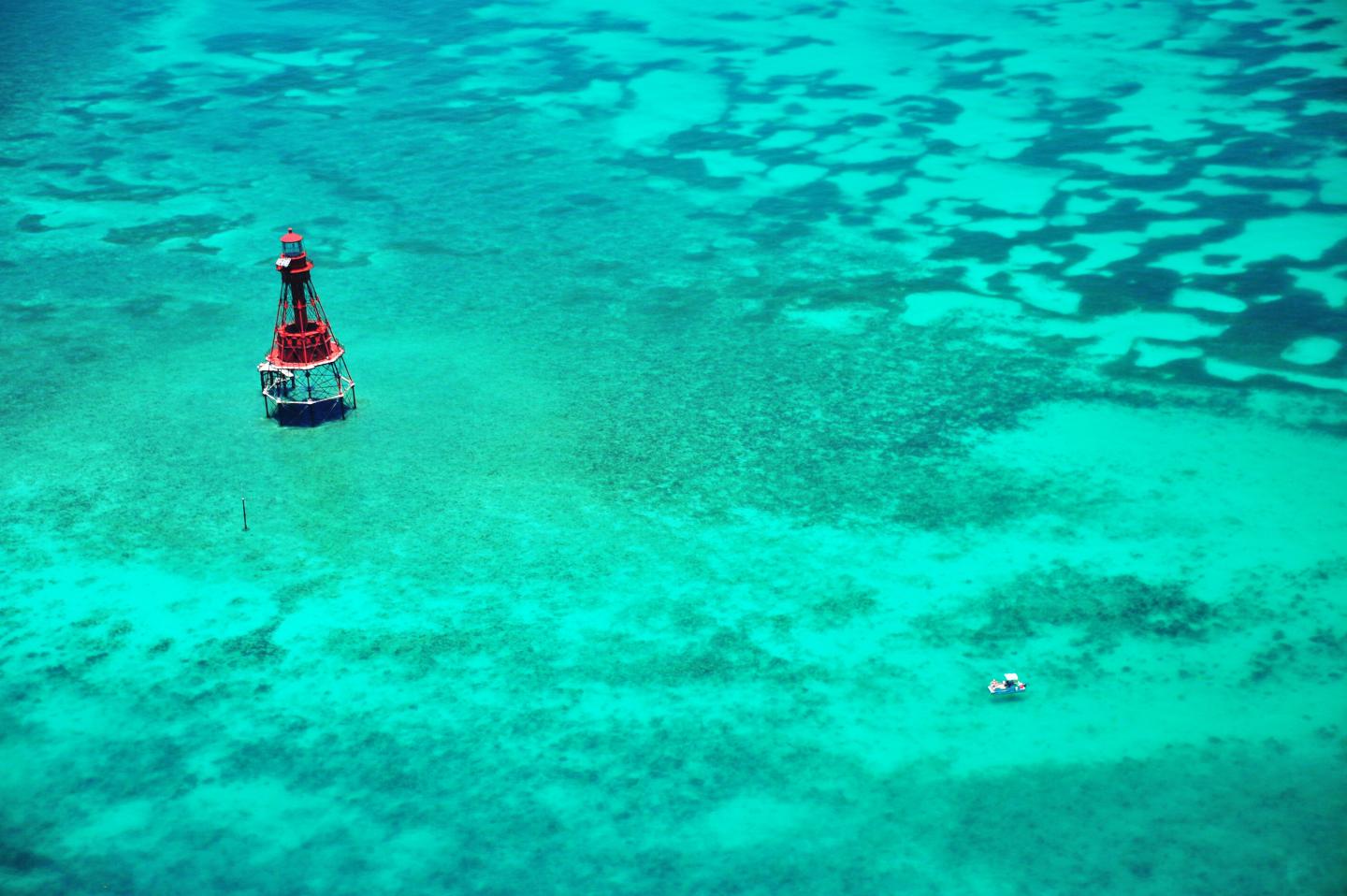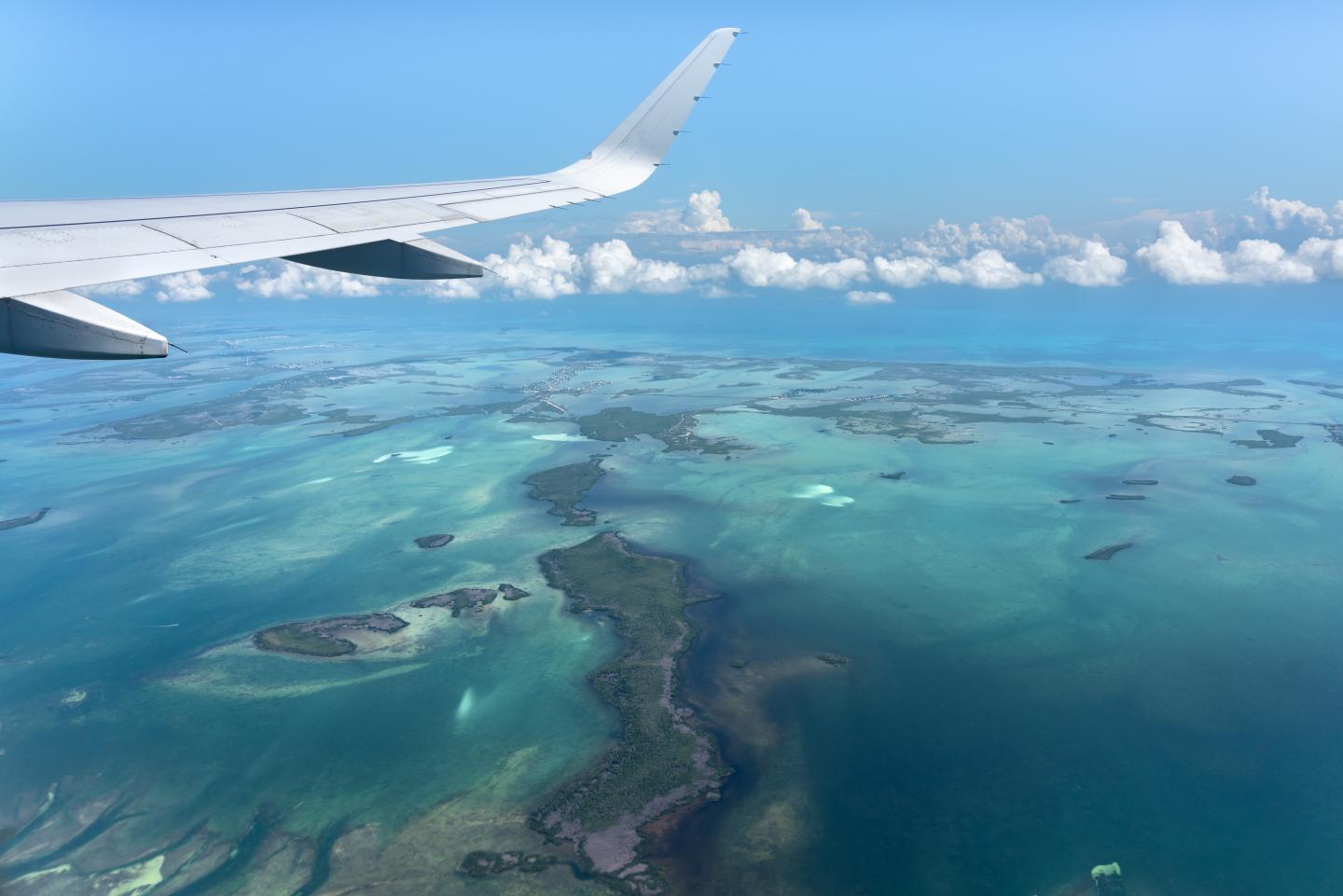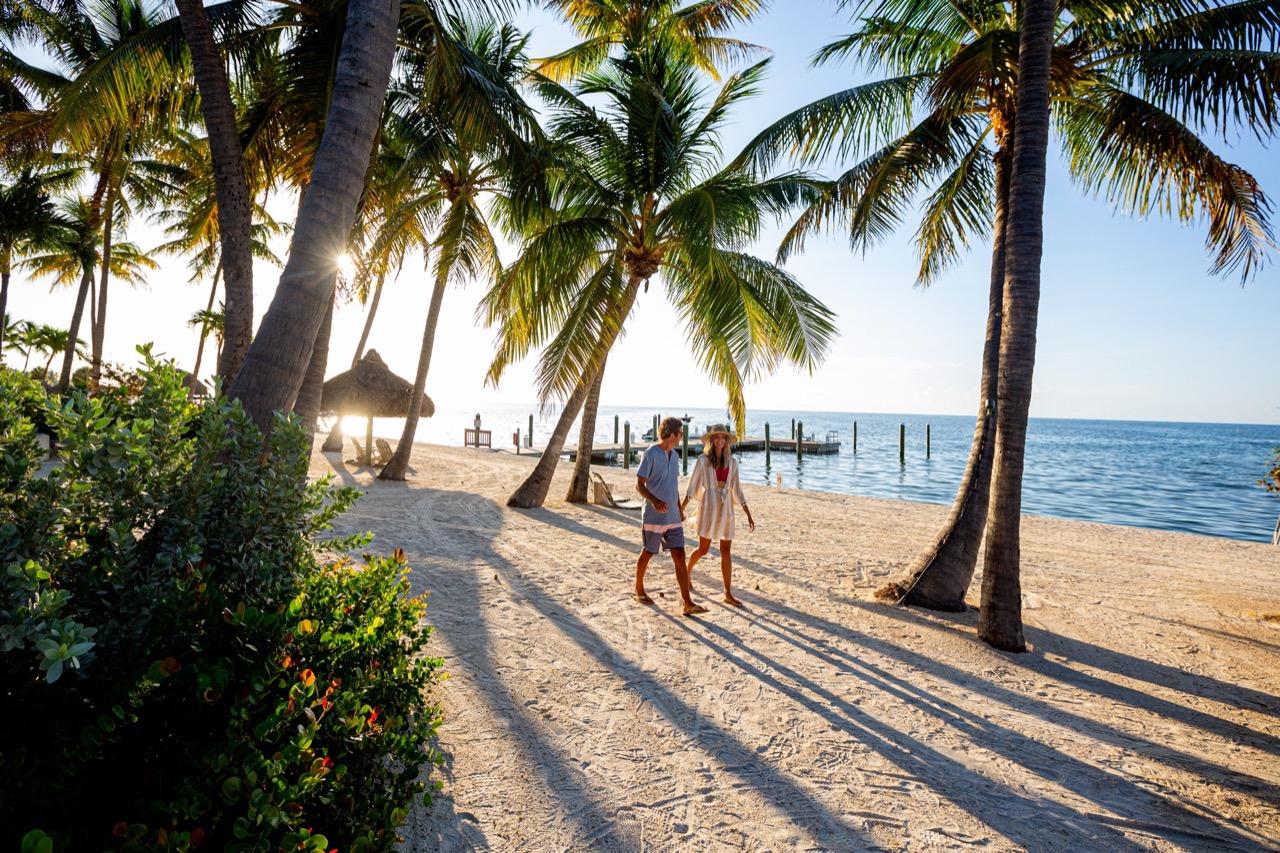
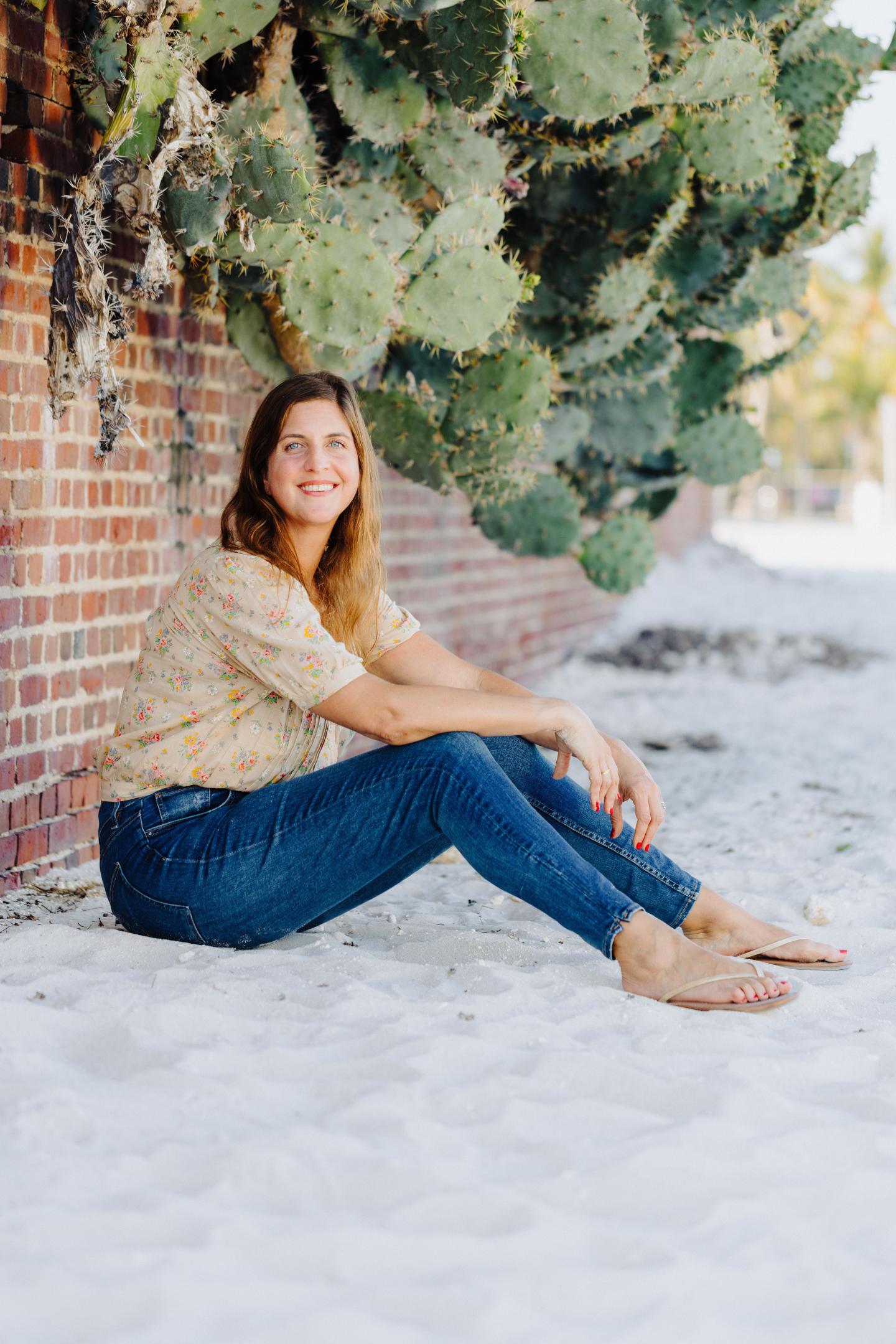
Emily Schulten Weekley: Poet Laureate of Key West
Author: Laura Myers, November 2025
Emily Schulten Weekley, the 2024-2026 poet laureate of Key West, lives a hectic, juxtaposed life as a creative lyrical writer and full-time working mother and wife in Florida’s southernmost island city.

She’s currently writing her fourth poetry collection that encompasses the wide-ranging emotions of parenthood and far-reaching implications of environmental changes.
Weekley is a 46-year-old mother of a pre-school child, the wife of the assistant general manager of Fausto’s Food Palace, and a kidney donor to a brother.
At the College of the Florida Keys, she’s a professor of English and creative writing and directs CFK Poetics, which hosts visiting poets who present their works in public readings. The poet laureate earned a Ph.D. in English and creative writing from Georgia State University in 2012.

As a college professor, the legacy she works to provide is “a lifelong community of writers. I hope I can give that to my students,” Weekley says.
A native of Bowling Green, Kentucky, Weekley drove her Volkswagen Cabriolet down the Overseas Highway 20 years ago to Key West, sight unseen, with $400 borrowed from her parents. She had earned both a B.A. and M.A. in English from Western Kentucky University.
Before a job interview at Caroline’s Café on Duval Street, she ran into a couple of college acquaintances and landed the waitress gig, “getting by on a song and a prayer.”
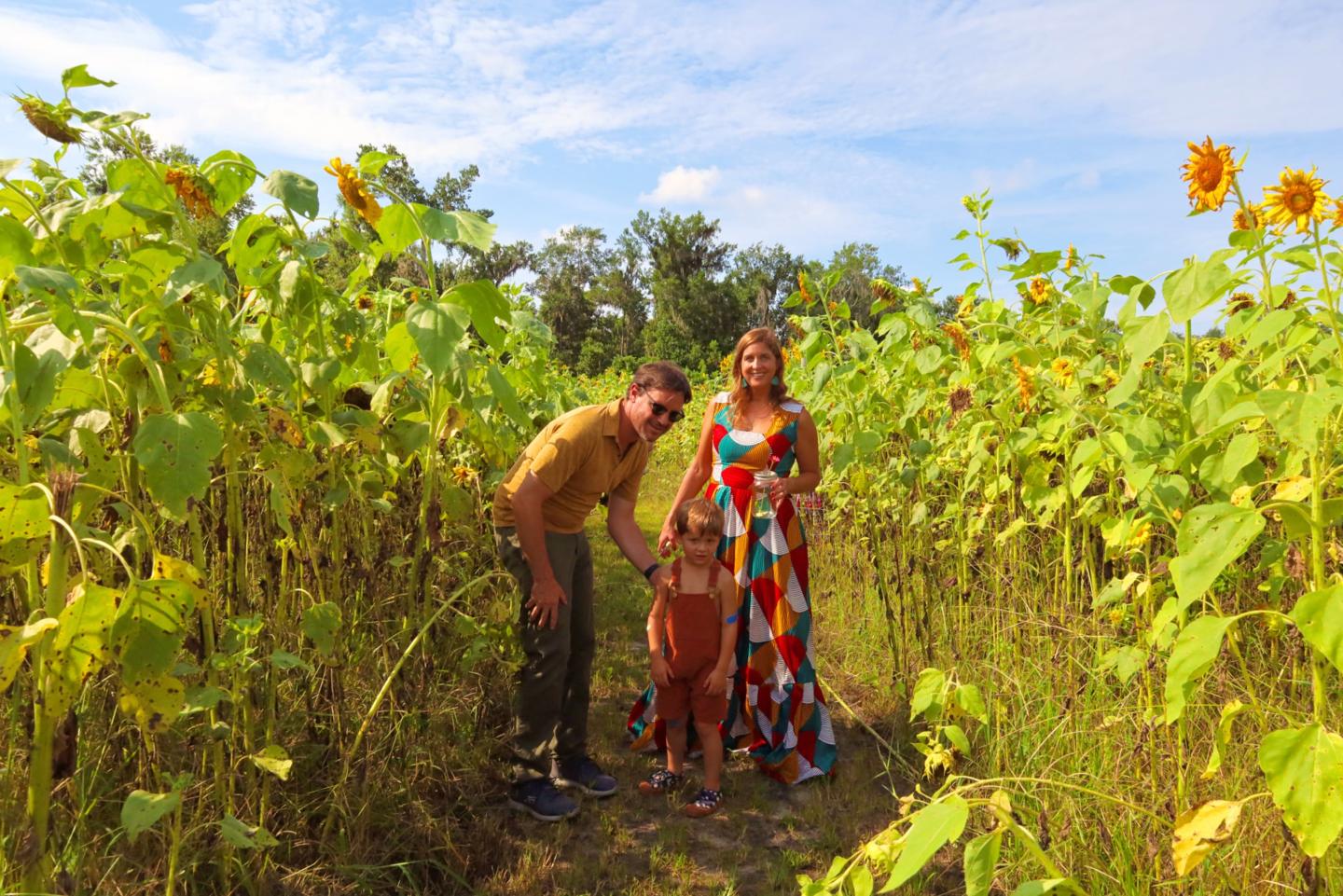
Weekley is also a globally recognized and published poet who’s preparing to travel to Hungary on a prestigious Fulbright U.S. Scholar Program award in literature and creative writing.
In January, Weekley will journey to Hungary’s University of Pécs, the country’s oldest university founded in 1367, with husband Dakin and their 4-year-old son Otis to begin a Fulbright fellowship for the spring 2026 semester.
She will teach both a bachelor’s and a master’s degree-level course — conducting a seminar on creative writing focusing on poetry and teaching children’s literature — within the Institute’s Department of Literatures and Cultures. She’ll also research Hungarian folk and fairy tales and their adaptation in the tradition of generational narratives.

Weekley’s work often paints vivid descriptions of the environment, of how a sense of place is linked to both the mind and the outside world.
"I find it astonishing that nationally recognized, award-winning, full-time teacher and full-time mother Emily Schulten Weekey has time to write poetry, good poetry. Her poems take the reader on an engaging, accessible, and deeply felt journey,“ says Nance Boylan, the Key West poet laureate board president who worked to create and launch the title in 2012.
“Her young son is already showing promise to follow in his mother's footsteps,” Boylan adds.
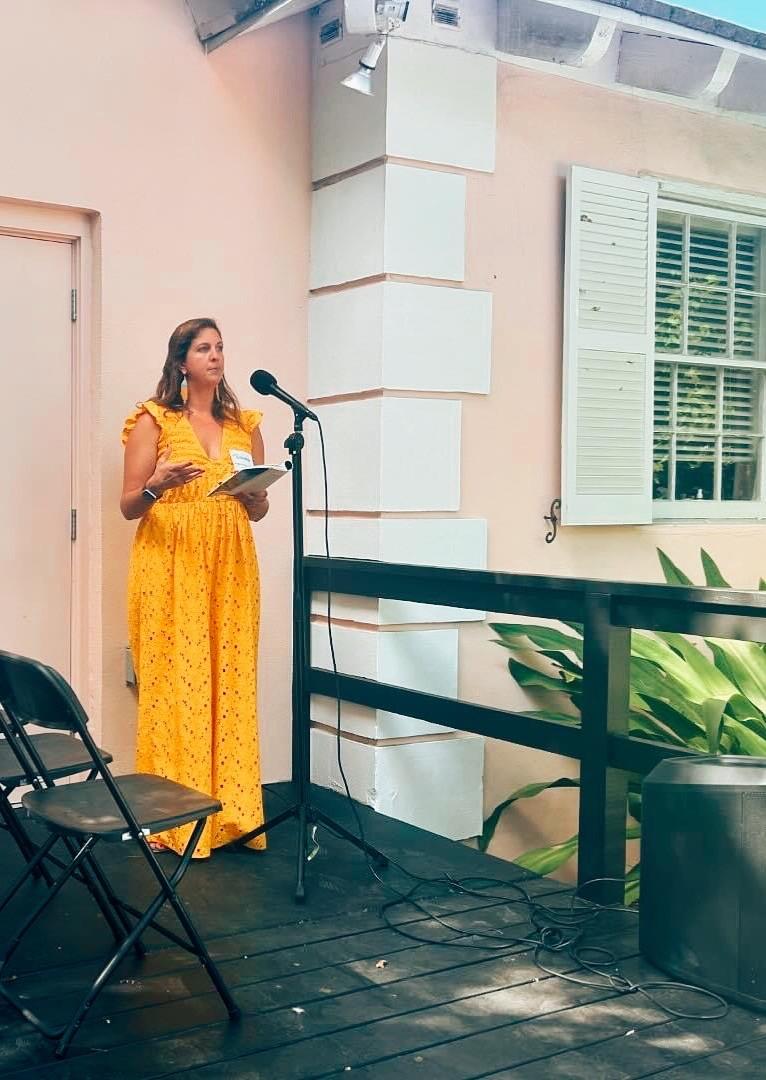
Locally, Weekley is making a poetic impact on Key West children through her The Seawall Society of Young Poets. Funded by Weekley’s award from the Academy of American Poets and the Mellon Foundation, Seawall Society is introducing poetry to youth ages 7 through 12.
Partnered with the Key West Art & Historical Society, the organization is conducting workshops at Fort East Martello Museum, placing the work of young poets in public spaces, installing interactive ‘write-a-poem’ tools at Truman Waterfront Park, and has a website seawallsociety.com, showcasing young poets’ works. Collective poems were published on postcards and distributed by hotels including The Gardens and Key West Historic Inns. Six video anthologies also have been produced.

“She brings this energy of being connected to the youth to her readings and her work. Emily provides the form and function of poetry for her students’ engagement,” says Vicki Boguszewski, Key West Poetry Guild member since 1996.
”Poetry offers a language for the inexplicable. Sharing this language with children fuels their creative superpowers and paves way for their own communication styles,” Boguszewski adds.
Weekley has addressed literary gatherings ranging from the Library of Congress’s National Book Festival in Washington, D.C., to the Emory Poetry Stage in Decatur, Georgia, to monthly meetings of the Poets of Key West Poetry Guild.
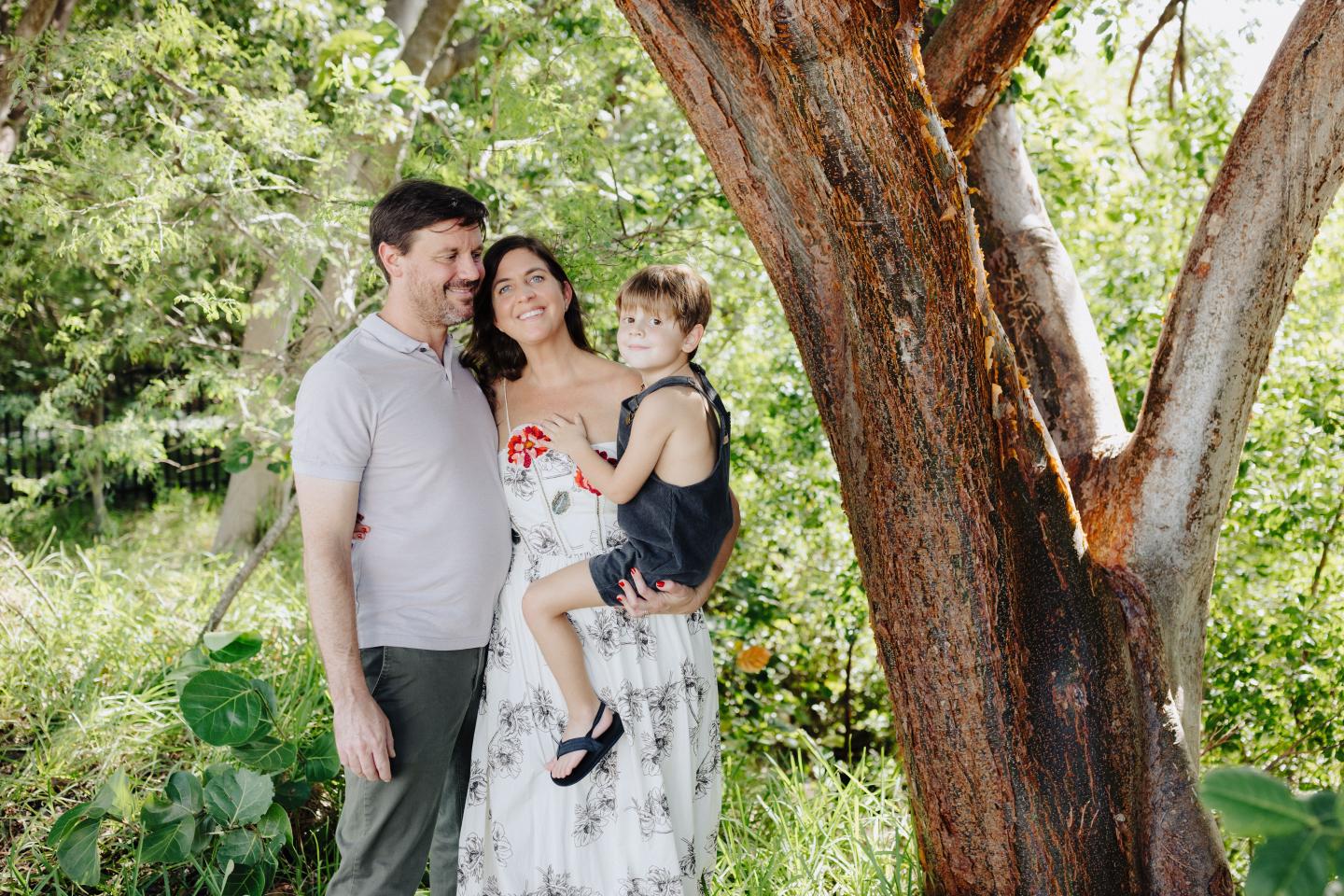
Weekley was the reader at a recent poetry meet in St. Petersburg, Florida, bringing Dakin and Otis along to experience a stay at The Kerourac House of St. Petersburg Inc., the home of Jack Keruoac, the former pioneer Beat Generation poet and novelist.
Like a few other Key West couples, Emily and Dakin met “in a Green Parrot Back Bar pair-up” at the Whitehead Street bar known as a “sunny place for shady people.” The two bonded over their fondness for Russian literature, Weekley recalls.
Weekley follows the footsteps of other poets — Elizabeth Bishop, Robert Frost, James Merrill, Wallace Stevens, Richard Wilbur and others — drawn to the mystique of subtropical Key West and its literary, historical and artistic heritage.
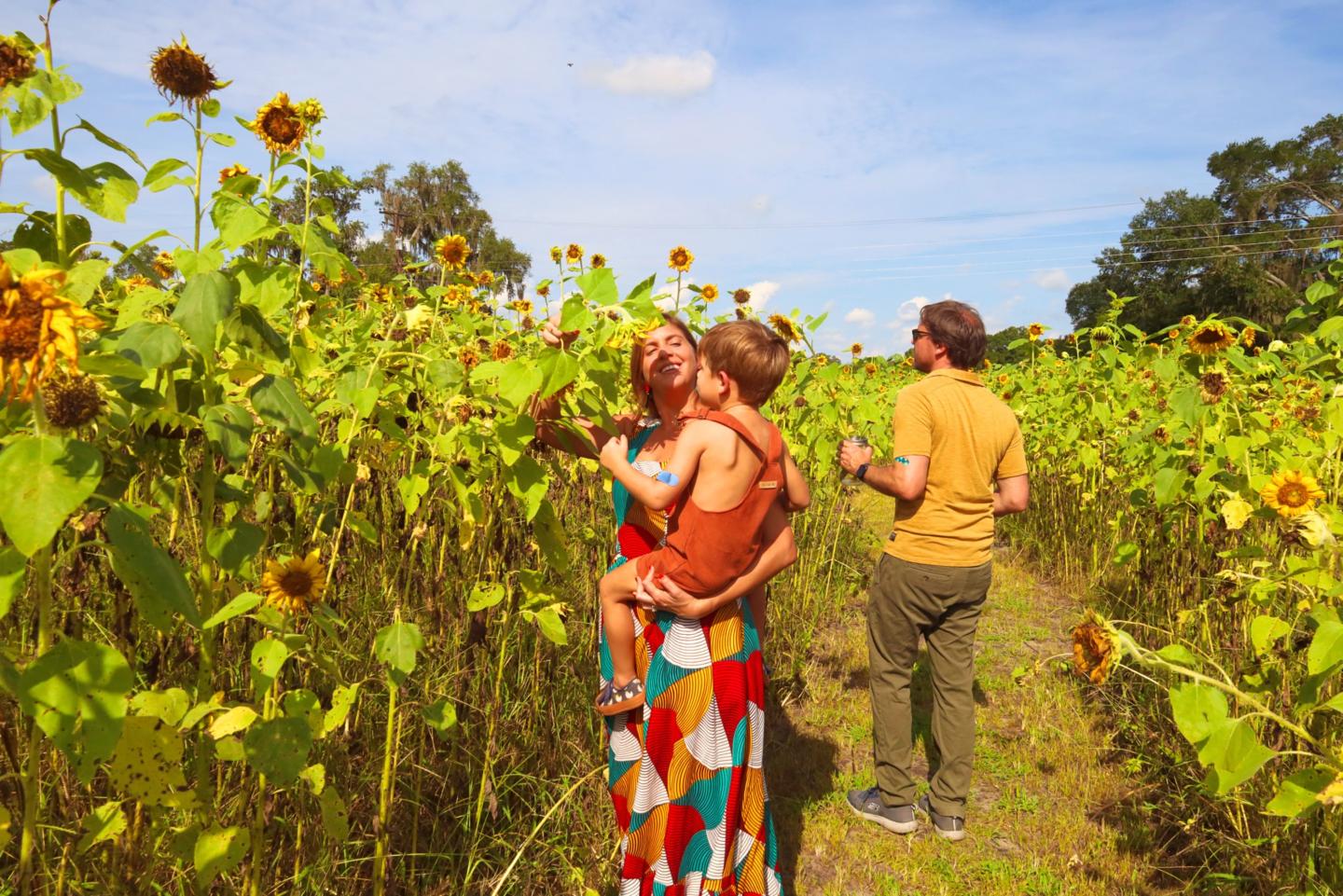
For poets, writing about Key West –- with its rich history, trove of literature produced by local authors, and many character quirks –- is often a challenge. “How do you write about a place that’s a postcard but give it depth?” Weekley asks.
Weekley’s poetry collections include Easy Victims to the Charitable Deceptions of Nostalgia, the 2023 White Pine Press Poetry Prize winner; and The Way a Wound Becomes a Scar, an Eric Hoffer Award Finalist. She’s earned a slew of awards for her work, published in Ploughshares, The Kenyon Review, Best American Poetry 2025, Tin House, and other publications.
Her first published work as a 6th grader was a patriotic rhyme in the anthology “A View from the Edge,” published by the National Library of Poetry.
“I’ve always liked words as a tool to parse out complex ideas and emotions,” Weekley says. “As a child I always had a diary and a notebook.”
Among a few of her poems: “Ode to Fetal Sharks in Jars,” in The Adirondack Review; “To Make Paradise out of Paradise,” in The Penn Review; and “We’ll All Be Drowned,” at Smartish Pace.
When did you first come to the Florida Keys and why?
I moved to Key West a bit impulsively in 2005. It was a stormy year to arrive, but that added to the layered atmosphere and the varied experiences.
What is about Key West that is most inspirational to all types of artists, including poets and writers?
All artists find something different to inspire them. The transience, the atmosphere, the color, the shadow and shade, the seclusion, the shared narrative of the island. And perhaps that’s the answer: that there is so much to inspire that all types of artists have found different inspiration here. It’s very lush here, and there’s certainly a lot to be motivated by with regard to the sensory. But it’s also a self-fulfilling prophecy: one, then two, then three famous writers have lived here and so people follow, hoping they will be inspired by what’s come before them or by what inspired those writers and that they’ll have similar success.
Once Key West became a place where writers and artists came, the seed was sewn, and those little pilgrimages are always ripe with inspiration.
There are different audiences I imagine that different writers and artists are considering. Certainly to be writing here in the 1930s as Elizabeth Bishop and writing here in the 1940s as Tennessee Williams and writing here in the 1970s as Ralph Ellison are going to divine different inspirations. That’s the magic: that such a tiny place can elicit such wildly varying works of art for artists of such wildly varying backgrounds and experiences.
For me, what has been inspiring with specific regard to Key West is its history, all the layers of what it took for the place to be the place that it is now. Presently, my work is interested in the elements all around us, their value, and the risk they’re at of changing in ways that might be unrecoverable.
What aspects of the Key West way of life are most important to you?
The Key West way of life, for me, is quite like the way of life in most places. I work a great deal and try to spend as much time with my family as possible. It’s the backdrop where I do these things that is unique. I value the history and those for whom this way of life has been the way for generations. I value the juxtaposition of cityscape and remoteness. I value a small community that looms larger than one would expect from its four square miles.
What inspired you to become passionate about participating in the Keys’ literary life and how does that passion impact your daily life and work?
I am passionate about a literary life that one carries with her. It’s important to participate in literary life — internal and external — wherever and everywhere I go. But since this is home, being part of fostering a literary life for others who live here is what has become to me most important about the Keys’ literary life.
We are incredibly fortunate that there are so many avenues through which to pursue a literary arts community in Key West. I am incredibly fortunate to have found a space to work with young people in town, particularly at the college for the past 10 years. I have the pleasure of working with students who are talented and enthusiastic to pursue their passion for writing and to learn to build their own avenues here.
What do you hope your actions as Key West’s poet laureate and as a college professor will help to accomplish?
What I hope The Seawall Society of Young Poets has accomplished and can continue to accomplish is a way into words for young people that will stay with them, so that they will notice the wild world around them and live a poetic life, whether they pursue writing or not.
As a professor, I hope that I can continue to learn and to be better for my students. They teach me so much, and I hope that in return I can really see those students who are eager and that I can help them to find a path toward building their own orbit of words and literature. I want to be able to help them, if can, to see all they are capable of.
How do you personally work to ‘connect and protect’ the Keys’ literary world and the island chain’s unique lifestyle?
I don’t see myself as someone who can take credit for the work of sustaining and perpetuating the unique and literary world of the Keys. I am fortunate to be part of the literary community that came long before I landed here, and I hope that I can be one of many people who do the good work of lifting the collective voice of the island while simultaneously celebrating new voices that pass through or develop here.
